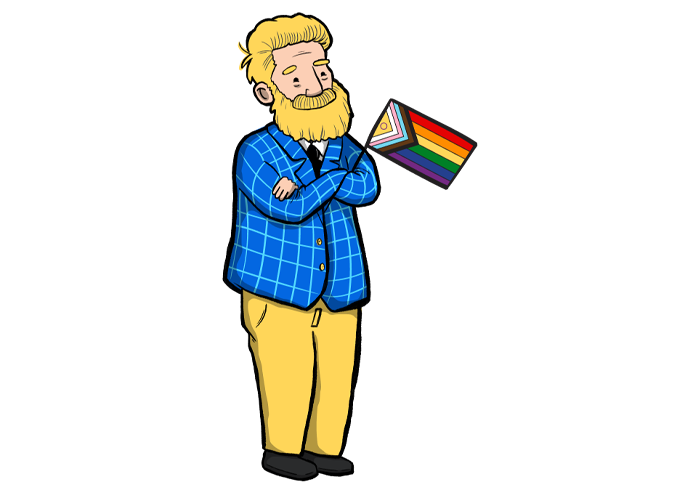Well-being of LGBT+ children and youth
Research in Iceland
The article “Psychological Well-Being of Sexual Minority Young Adults in Iceland: Assessing Differences by Sexual Attraction and Gender” (2017) reports on a study. The research compared the well-being of bisexual and gay students to that of heterosexual students. The study used data from a 2013 survey of Icelandic junior college students (Youth in Iceland). The study looked at depression, anger, and stress levels by gender. Results showed that LGBT+ young people, both girls and boys, had worse well-being than heterosexual youth. Girls faced especially difficult challenges. Both lesbian and bisexual girls experienced more anger than heterosexual girls. Bisexual girls reported the poorest well-being of all groups. In 2010, an article titled "Life satisfaction of gay adolescents in 10th grade" was published. The study found that gay adolescents rated their life satisfaction much lower than their heterosexual peers. There was a gender difference among gay and lesbian students with lesbian students reporting the lowest life satisfaction.
Transgender children's situation
There is little research and official data in Iceland about transgender people, particularly transgender children. However, interviews and data from other countries suggest that transgender people are worse off in terms of mental health, physical health, education, and financial status. This group is also at higher risk of violence and discrimination compared to cisgender people (I Am Still the Same Individual: Social Experience and Perception of Trans Individuals [Ég er enn sami einstaklingurinn. Félagsleg reynsla og upplifun trans einstaklinga], Anna Guðrún Norðfjörð, 2013). Sigríður Birna Valsdóttir, a counselor at Samtökin '78, points out that suppression of feelings can cause transgender children to experience extreme anger, anxiety, depression, self-harm, eating disorders, and other mental health issues ("Gender Dysphoria in Children and Adolescents: From the Perspective of Children and Parents" [Kynáttunarvandi barna og unglinga. Frá sjónarhorni barna og foreldra], lecture by Sigríður Birna Valsdóttir, 2013). Transgender children are particularly vulnerable, and education and support are crucial. This can make the coming-out process and living as transgender easier for everyone. It's important to remember that discrimination and exclusion of transgender children can occur at home by family members, similar to other LGBT+ groups. Therefore, it is critical that the school system provides support and understanding. The Human Rights & Democracy Office of Reykjavík City has developed a support plan for primary schools to assist transgender students that can assist schools in supporting students.
Intersex Iceland
There is little material available about intersex people and children in Icelandic. Notably, Intersex Iceland, an advocacy group for intersex people, and Samtökin '78, an advocacy group for LGBT+ people (including intersex people), are mentioned. OII Europe, a European intersex organization, has published a guide for parents of intersex children, which has been translated into Icelandic.

Intersex children's situation
There is very little discussion about the situation of intersex children in the Icelandic context. The school system plays a key role in education and discussions. It is worth mentioning the statement from the Ombudsman for Children in 2015 about surgeries on intersex children:
“The justification for surgeries on intersex children is often that it is difficult for a child with ambiguous genitalia or other deviations from the 'traditional' male or female body to feel a part of society and develop a strong self-identity. In contrast, intersex individuals have pointed out that they suffer from the physical and mental consequences of such surgeries, as well as the shame associated with the secrecy of their status... It is not right to consider uniformity as a solution to bullying and ignorance, but rather to promote education and thereby increase tolerance and understanding of the diversity of daily life."